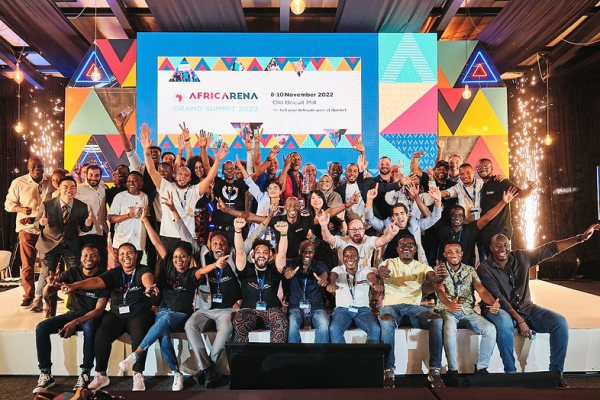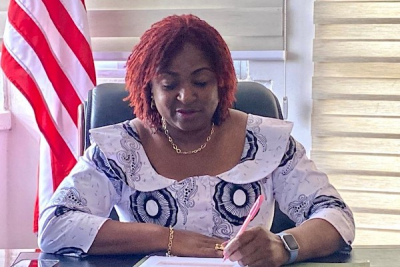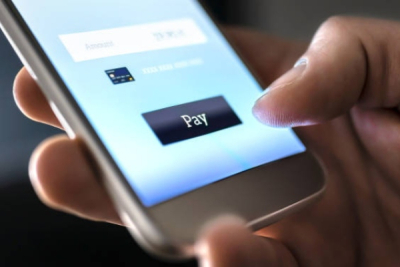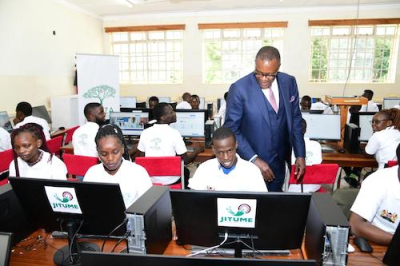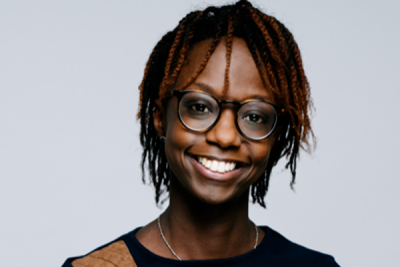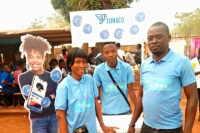To ensure internet access for all schoolchildren in Rwanda, the government has set up the "School Connectivity Program". Launched in March, the pilot phase of the project takes into account 500 schools throughout the country.
As part of this program, US firm Starlink recently deployed the internet in 50 schools across the country’s rural zones. The news was disclosed by the Rwandan Ministry of ICT and Innovation on July 5.
According to the source, the first stage of the project marks an important step towards reducing the digital divide and ensuring that all Rwandan schools have internet, especially in remote areas.
Announced a few months ago, the project falls under the government’s School Connectivity Program launched in March 2023. It is the product of a collaboration between the Rwandan government, Starlink, and a contribution from Tony Blair, the former Prime Minister of the United Kingdom. Through his foundation, Blair has committed to connecting 10% of the 500 schools in the pilot phase of the project.
With the Internet, the more than 18,000 students enrolled in the schools covered by the project will have access to online courses and be able to improve their academic results.
In Rwanda, 44% of the schools do not have access to the Internet. Last February, the Minister of ICT and Innovation, Paula Ingabire, stated that about 3,000 of the 6,756 schools in Rwanda were not yet connected to the Internet.
Samira Njoya
As the continent experiences a technological revolution, new startups keep emerging in Africa, in every sector. AfricArena, in this context, plays a vital role as a catalyst for technological innovation and entrepreneurship on the continent.
Based in Cape Town, South Africa, AfricArena is a startup accelerator founded in 2017 by entrepreneur and investor Christophe Viarnaud, who also serves as its CEO. The startup promotes collaboration between the key players in Africa's technological ecosystem and helps startups expand by making them more visible and providing them with funding opportunities.
The accelerator aims to connect African startups with investors, businesses, and potential partners worldwide. Each year, it organizes regional and international summits that bring together all stakeholders in Africa's tech sector, providing a platform for continental startups to showcase their ideas, build valuable connections, and access funding opportunities. The accelerator is set to hold its next regional summit in Nairobi, Kenya, on September 6. AfricArena organizes regional events throughout the year, thus creating opportunities for startups from different African regions to connect with local and international investors.
Since its inception, the accelerator has launched several open innovation challenges for Africa's top tech startups. Whether for businesses specializing in deep tech, logistics, mobility, health tech, artificial intelligence, agritech, edtech, or fintech, these challenges allow founders to demonstrate their entrepreneurial talent and innovative technology to investors, businesses, and the pan-African tech ecosystem.
AfricArena is a staunch advocate of diversity and inclusion in the tech sector. It strives to promote equal opportunities by supporting female entrepreneurs and encouraging the participation of young African talents through initiatives such as the Fem-Tech Startup Innovation Challenge, organized in partnership with Amazon Web Services.
The accelerator collaborates with various national and international institutions, including Bpifrance, Hello Tomorrow, Vinci Energies, Sanofi, energy company Engie, La French Tech, Viva Technology, Air France KLM Group, and Wesgro, and many more.
Melchior Koba
Amidst the digital revolution, an increasing number of African countries are embracing technology to drive development, with the continent's sizable youth population presenting a significant advantage.
The Liberia Telecommunications Authority (LTA), Liberia’s telecom watchdog, plans to launch a project that will revolutionize the sector and accelerate digital advancements nationwide. Known as the Liberia Digital Transformation Project, the initiative will be launched in collaboration with the government.
The project was unveiled by LTA’s Chairperson, Edwina Crump Zackpah. According to her, it will enable Liberians to embrace e-business solutions and smart technologies. This project will “unlock our digital economy,” she said.
The focus of the transformation project, Zackpah stressed, is to enhance technical skills in areas such as eCommerce, software utilization, and tech entrepreneurship. Seed funding will support sustainable tech solutions addressing local challenges.
The Liberia Digital Transformation Project is a huge step in Liberia's path to economic prosperity and digital advancement. Using technology, the West African country wants to shape its future and transform lives.
Digital transformation will unlock new opportunities, drive economic growth, and empower citizens in Liberia. The government's commitment to technological advancements underscores its vision for a prosperous and digitally-enabled future.
Hikmatu Bilali
This tech entrepreneur already heads an edtech but still decided to venture into the fintech sector.
GoFree is a technological solution developed by a Nigerian startup. Available on iOS and Android, the mobile app gives access to financial services, e-commerce, and instant messaging. Based in Nigeria and the US, the startup was founded in 2022, by Lekan Adejumo.
Adejumo, according to a Medium post, claims that "if data can freely circulate between different mobile phone operators, money should be able to do the same.” The post further explains that the founder “wanted to create the equivalent of GSM for money, allowing seamless transactions between various financial services". Thinking of this interoperability was one of the reasons that pushed him to put together a team to solve the problem.
Users must first set up an account to use the app’s various services. Information needed includes a phone number, which will be linked to the user's banking services, virtual cards, payments, and social services on GoFree. A Naira wallet is automatically created upon setting up the account; this eases access to the fintech’s financial services, such as sending and receiving money, paying bills, or managing one's finances. The wallet can be topped up by various means such as bank wiring, Nigerian-issued bank cards, Flutterwave, Apple Pay, or Google Pay.
The messaging function, on the other hand, allows for exchanging instant messages with colleagues, friends, or family, sharing files and documents, and collaborating on projects. The application also integrates e-commerce services. Users can publish items on their GoFree profile and also sell them to other users. GoFree doesn’t charge fees for in-App transactions. According to Play Store statistics, the Android version of the app has been downloaded more than 500 times.
Adoni Conrad Quenum
Given the centrality of digitization in development, it is now crucial for the population to possess digital skills to adapt to forthcoming changes. Consequently, numerous governments are taking steps to empower their citizens, ensuring the achievement of developmental objectives.
The Kenyan Ministry of Information, Communications, and The Digital Economy has introduced a nationwide digital literacy program. To drive economic transformation, the initiative will establish laboratories across the country to enhance digital skills and literacy. Over 23,000 devices will be installed in educational institutions and ICT hubs.
During the inauguration of a digital laboratory at Maseno School in Kisumu County on July 5, Eliud Owalo, Cabinet Secretary (CS) of the Ministry, emphasized that the initiative is in line with the government's objective of digitizing services. “We want our youth and the public at large to uptake digital skills so that they are relevant in the current operating environment,” he said.
The program aims to benefit youth and the public, aligning with the government's digitization efforts. The government is also facilitating e-commerce through free public Wi-Fi, a national addressing system, digital identification cards, and affordable smartphones. Discussions with global tech giants are underway to create online work opportunities for Kenyan youth.
Additionally, to maximize the utilization of the government's digital infrastructure, affordable smart mobile phones that are locally assembled will be launched in August, aiming to cater to a wide range of Kenyans.
Hikmatu Bilali
She is an internationally renowned entrepreneur and business leader. She co-founded and heads Kwara, a startup that helps financial cooperatives better manage their operations using technology.
Cynthia Wandia, a Kenyan electrical engineer and entrepreneur, founded the start-up Kwara with David Hwan in 2018. Kwara, which she steers as CEO, offers financial cooperatives and their members a secure, enjoyable, and affordable online and mobile banking experience.
Based in Kenya, Kwara's mission is to enable the 3 billion under-served people worldwide to become financially stable and balanced. To achieve this, the start-up is modernizing and equipping savings and credit cooperatives with a banking services platform that updates and improves their back-office operations.
In January 2023, the startup, which already serves over 100,000 members, raised $3 million in seed capital and signed an exclusive digital solutions distribution agreement with the Kenyan Union of Savings and Credit Cooperatives (Kuscco), representing over 4,000 savings and credit cooperatives (Saccos) in Kenya.
"We believe that we have barely scratched the surface of the Kenyan market. That's why we're going to invest in products and services that will allow us to deepen our relationships here," said Cynthia Wandia.
"The logic of the agreement is clear: it's an opportunity to generate leads and distribute our core product as quickly as possible, and to deepen our competitive edge," she added.
Cynthia Wandia holds a bachelor's degree in electrical engineering, obtained in 2009 from Yale University. In 2014, she co-founded ASTRA Innovations, an energy company where she served as CEO until 2017.
Before founding Kwara, she worked for several companies. In 2010, she served for six months as a business development consultant for the Mexican business accelerators network Aceleradora de Empresas ITESM. Between 2012 and 2014, she worked at E.ON Climate & Renewables, successively as a fleet performance analyst and director of special projects. In 2017, she joined Finparx, a business creation studio, as a project developer.
In 2018, the Kenyan newspaper Business Daily Africa named Wandia one of the country's 40 most influential women under 40.
Social networks have an important place in Africans’ daily life, despite the continent having a low penetration rate for the Internet and smartphones. In this context, some local tech entrepreneurs have been building African solutions to tap into this market.
Turaco is a social network platform developed by a Central African start-up. It allows users to interact by posting reviews, photos, videos, or even listening to the radio. Founded in 2021 by Gamando Marius Roméo (pictured right), the start-up signed a partnership agreement on Friday, June 30, with the private institute Gutschool. The agreement provides Gutschool with an account on Turaco to publish information related to the university, similar to Facebook or Twitter.
"Turaco is a social network created by a Central Africans for Central Africans, and the goal is to encourage the sons and daughters of this country to use this social network. As in Marketing, the Turaco application is a product and it needs to be consumed. We are trying to boost this application, which is why we are calling on young people of all ages to come to this platform to connect freely and at a lower cost," declared Turaco's founder.
The solution has a mobile application accessible only on Android. After downloading, the user will create a profile and begin interacting with contacts already present on the platform. It is possible, among other things, to contact other users via private messaging, to create discussion groups or join existing ones, listen to the radio, or access information via mass media.
"Through this network, compatriots here and elsewhere can follow the news of the country and listen to several radio stations live. The novelty is that subscribers can already make calls like on Messenger," explained Gamando, three months after the app’s launch.
On Android, the app has been downloaded over a thousand times, and the Central African firm is working to get more people to use the app. For example, it gave out smartphones to top users on several occasions.
Adoni Conrad Quenum
The African e-mobility sector is attracting giants from all over the world. In Sudan, a tech entrepreneur has partnered with his friends to establish a solution to compete in his country.
Tirhal is a technological solution developed by a Sudanese start-up. It connects passengers and drivers in four regions of Sudan. Based in Khartoum, the start-up was founded in 2016 by Mohamed Elzakey, Omer Elzakey, Yaser Abba, and Siddig Eltaj. Since its launch, it has already raised approximately $500,000 to support its growth and develop its technology.
"Tirhal's vision is to work to facilitate people's lives by providing various transport services that suit all groups," the platform states.
The mobile App is available on iOS and Android. Users register by creating an account, allowing them access to various features of the app. To take a ride, users simply input their destination, the type of vehicle, and the starting point, and Tirhal displays the fare for the ride. It is also possible to book a taxi for a future ride.
The start-up also offers delivery services, such as delivering parcels and taking orders from restaurants. Tirhal has a fleet of more than 200 motorcycles. For taxis, the start-up works with 2,900 vehicles that have already traveled more than 100,000 kilometers. A laudable record, despite rocky beginnings.
"When we started, we only had three cars, my uncle's and two of my friends'. Today, we have 45,000 drivers and 4.5 million customers," Mohamed Elzakey explained in 2019.
Tirhal charges 10% of the ride fare. This is a low percentage compared to what start-ups operating in the sector earn. However, this strategy, coupled with the quality of the fleet's vehicles, has allowed the start-up to dominate the Sudanese market. According to Play Store statistics, the Android version of the application has already been downloaded more than a million times.
In 2023, it was among the finalists of the AfricaTech Awards, an event that took place last June 15 on the sidelines of the Parisian technology exhibition, VivaTech.
Adoni Conrad Quenum
In a bid to analyze data on South African consumer behavior, tech entrepreneurs have decided to set up a custom application.
Maholla is a technological solution developed by a South African start-up. It allows users to earn bonus points on all purchases made. The start-up, based in Amsterdam and Cape Town, was founded in 2021 by Adam Reilly and Jed da Silva. Since its launch, it has raised approximately $2.1 million to support its growth, among other things.
The application is available on iOS and Android. Users create an account with their email and phone number and then begin scanning their receipts on the app. Regardless of the store where the purchases were made, users will earn bonus points which can be accumulated and exchanged for various gifts such as airtime, access to the in-app games, etc. Users earn more points when scanning receipts from the start-up's partner brands.
Data collected by Maholla is used for marketing purposes. "Data collected by more than half a million receipts on the Maholla app indicate that members of our youth are turned to wholesalers and bulk retailers to make ends meet," Adam Reilly, co-founder of Maholla, explained in a report. The app collects data on the consumption habits of South Africans, which could help its partner firms adjust their policies as needed.
At present, on Android, the App has passed 100,000 downloads and it successfully raised $1.5 million in a funding round last April. Maholla has recorded more than 8.5 million receipts, according to its data.
Adoni Conrad Quenum
As Africa experiences a rapid digital transformation, countries on the continent grapple with digital security issues, and governments double down on efforts to protect various platforms that may be subject to cybercriminal attacks.
South Africa's Department of Justice and Constitutional Development (DOJCD) has been fined 5 million rands ($268,000) by the Information Regulator (IR), according to the South African government's official press agency.
The fine was levied following the DOJCD's non-compliance with the Personal Information Protection Act (POPIA) and a previous antivirus software license renewal order issued by the regulator.
"The enforcement notice required [the department] to provide proof within 31 days of receipt of the notice that the Trend antivirus license, the SIEM [Security Information and Event Management] license, and the intrusion detection system license had been renewed," said the regulatory body.
The notice sent to the department specified that if it failed to comply with this requirement by June 9, 2023, it could face a fine of up to 10 million rand.
As the Department of Justice failed to comply, "[...] the regulatory body concluded that it did not comply with the enforcement notice served on it under POPIA. As a result, the regulatory authority fined the department an administrative penalty of 5 million rand for non-compliance with the enforcement notice," added the regulator.
In September 2021, the ministry suffered a major ransomware attack. Documents containing personal information were compromised and many files were lost. This attack disrupted courts’ operations and all electronic services provided by the ministry for several months.
Since then, the country's authorities have undertaken to secure the ministry's digital infrastructure.
Samira Njoya
More...
Although financial inclusion has recently improved in West Africa, small businesses in the region still consider financing a major barrier to their growth. This new partnership intends to change this dynamic by providing loans.
The International Finance Corporation (IFC) recently partnered with Orange Bank Africa, the digital bank of the Orange Group. The World Bank’s private sector arm made the announcement last Monday, July 3. The move, according to the source, aims to effectively and sustainably support, financially, small businesses in West Africa, including those in rural areas.
"This innovative investment demonstrates our firm commitment to leverage the power of digital financial services, especially in regions where financial inclusion remains limited. It also has the potential to set a precedent in digital lending," said Olivier Buyoya, IFC's Regional Director for West Africa.
Under the partnership, the IFC will partly cover loans made by Orange Bank Africa to micro, small, and medium-sized enterprises (MSMEs), in Ivory Coast, first, then in Senegal, and other West African countries, once the digital bank has received approval to operate there.
In detail, the IFC will cover 50% of the $30 million in loans that Orange Bank Africa will provide in the form of microcredits accessible via mobile to its clientele of small businesses and individuals. The bank, which has been operating in the Ivorian market since July 2020, also plans to allocate "larger loans" to local actors in the creative industry. This will enable the 100% digital bank to distribute an additional 300,000 loans by 2025.
According to Jean-Louis Menann-Kouamé, CEO of Orange Bank Africa, the partnership will accelerate the financing of MSMEs with concrete solutions, thus bolstering their productivity, making them more competitive on local and international markets, and creating jobs.
A year ago, in July also, the IFC inked a first agreement with Orange Bank Africa, to increase access to financing for agents and traders operating in the mobile money ecosystem in West Africa.
Samira Njoya
Burundi is getting ready to deploy 5G. Investments in networks are planned to accommodate this technology, which could potentially breathe new life into trade and services based on internet-dependent models.
The commercial launch of 5G mobile technology in Burundi is planned for July 2024. This is indicated in the schedule established by the Telecommunications Regulatory and Control Agency (ARCT) in its "Roadmap for the Deployment of Fifth-Generation Mobile (5G) in Burundi".
According to the regulator, "The first part consists of ensuring the availability of frequency bands identified for 5G but which are currently used for other purposes, through rearrangement and sharing mechanisms of said bands. The second part consists of planning the frequency bands allocated to 5G, and the third part consists of assigning the released and planned frequencies by the end of 2025".
To meet requirements for the launch, traffic-wise, the ARCT plans to assign each operator a continuous band of 60 to 100 MHz in the bands below 6 GHz and at least 800 MHz in millimeter wave bands (above 6 GHz). From next December, the regulator also plans to release spectrum in the 700 MHz, 2.3 GHz, 2.5 GHz, 3.5 GHz, and 26 GHz bands, with authorizations granted to test 5G from January 2024.
Deploying 5G in Burundi is key to the country’s strategy for digitizing its economy, and foster digital inclusion nationwide. Under the ARCT’s roadmap, 5G will not just represent a simple increase in data rates, but it will drive Burundi’s economic digitization.
Also, it will yield new uses, particularly thanks to the decrease in latency times, thus opening the way to new possibilities and applications, especially relative to the Internet of Things and connected objects in general.
According to the GSMA's "5G in Africa: Realising the potential" report, 5G mobile phone networks should represent, across their entire value chain, an economic contribution of $26 billion in Africa by 2030.
Samira Njoya
During his final year of medical school, Imad Chakri came up with the idea of creating a mobile application. It aims to assist doctors and healthcare professionals in their daily work.
PocketDoc is a digital solution developed by a Moroccan startup. It allows users, specifically doctors, to access relevant and practical information to enhance patient care. Dr. Imad Chakri (see photo) founded the startup, based in Casablanca, in 2018.
"Despite memorizing medical information for the past 7 years, I constantly forget important details, whether it's a prescription or a diagnosis when working in the hospital emergency department or a healthcare center. There was no solution, so I had to repeatedly excuse myself from patients to search on Google or call a colleague, or treat the patient's symptoms rather than the underlying cause of their illness," Imad Chakri stated.
The solution offers a mobile application available on iOS, Android, and Huawei's AppGallery. Once they download the application, users can register and gain access to various features. These include a list of over 300 conditions in 23 medical specialties, a medical semiotics dictionary, a selection of ready-to-use medical certificates, and a platform to discuss with doctors and healthcare professionals.
The startup generates revenue through subscriptions from doctors and healthcare professionals, as well as advertising from sponsors. According to Play Store data, its Android version has already been downloaded over 50,000 times.
PocketDoc wants to expand outside its local market. "After launching the application, we noticed significant traffic coming from other countries such as Algeria, Tunisia, Senegal, Guinea, Cameroon, and France. [...] Our goal is to be present in all French-speaking countries," Imad Chakri explained.
Adoni Conrad Quenum
By 2050 Africa’s digital economy could grow to $712 billion or 8.5% of the continent’s GDP. Being a promising area, several African countries, including Côte d'Ivoire, have been taking steps to speed up their digital transformation.
Amadou Coulibaly, the Ivoirian Minister of Digital Economy, inked on June 28, two memoranda of understanding with Cybastion Institute of Technology, a US tech consortium. The Ivoirian sealed the deals during a trip to the US. They will support two major projects in his country, knowingly the establishment of an administrative city and the construction of a data center.
The MoUs will enable the physical regrouping of all Ivoirian public bodies involved in the digital economy. They will also help set up an emergency data center where all of Côte d’Ivoire’s administrative data will be transferred, thus contributing to national digital sovereignty.
Two events led to the signing. The first is a trip to Côte d’Ivoire by a delegation from the US chamber of commerce, in 2022. Next is the signing of an MoU between the Ivoirian Ministry of Digital Economy and Cybastion Institute of Technology on December 15, 2022, during the Africa-USA Summit.
According to Thierry Wandji, CEO of Cybastion Institute of Technology, the new MoUs pave Côte d’Ivoire’s digital revolution.
Côte d’Ivoire, it should be emphasized, is seeking a lot of funds to implement its digital infrastructure program. Last October, the West African country said it needed $3 billion (over CFA2,000 billion) for the project.
Besides the recent MoUs, the two parties signed a framework contract to bolster cybersecurity support in Côte d'Ivoire.
Samira Njoya



